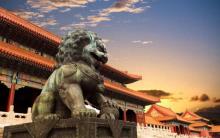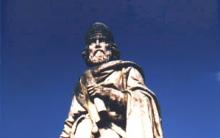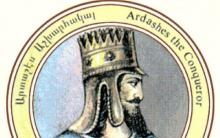Courage and timidity are moral categories associated with the spiritual side of the individual. They are an indicator human dignity, demonstrate weakness, or, on the contrary, strength of character, which manifests itself in complex life situations. Our history is rich in such vicissitudes, so arguments in the direction of “Courage and Cowardice” for the final essay are presented in abundance in Russian classics. Examples from Russian literature will help the reader understand how and where courage manifests itself and fear comes out.
- In the novel L.N. In Tolstoy’s “War and Peace,” one such situation is war, which puts the heroes before a choice: to give in to fear and save their own lives, or, despite the danger, to preserve their fortitude. Andrei Bolkonsky shows remarkable courage in battle; he is the first to rush into battle to encourage the soldiers. He knows that he may die in battle, but the fear of death does not frighten him. Fyodor Dolokhov also fights desperately in the war. The feeling of fear is alien to him. He knows that a brave soldier can influence the outcome of a battle, so he bravely rushes into battle, despising
cowardice. But the young cornet Zherkov gives in to fear and refuses to give the order to retreat. The letter, which was never delivered to them, causes the death of many soldiers. The price for showing cowardice turns out to be prohibitively high. - Courage conquers time and immortalizes names. Cowardice remains a shameful stain on the pages of history and literature.
In the novel by A.S. Pushkin " Captain's daughter“An example of courage and courage is the image of Pyotr Grinev. He is ready to defend at the cost of his life Belogorsk fortress under the onslaught of Pugachev, and the fear of death is alien to the hero at the moment of danger. A heightened sense of justice and duty does not allow him to escape or refuse the oath. Shvabrin, clumsy and petty in his motives, is presented in the novel as the antipode of Grinev. He goes over to Pugachev's side, committing betrayal. He is driven by fear for his own life, while the fates of other people mean nothing to Shvabrin, who is ready to save himself by exposing another to the blow. His image entered the history of Russian literature as one of the archetypes of cowardice. - War reveals hidden human fears, the most ancient of which is the fear of death. In V. Bykov’s story “The Crane Cry,” the heroes face a seemingly impossible task: to detain the German troops. Each of them understands that fulfilling their duty is possible only at the cost of their own lives. Everyone must decide for themselves what is more important to them: to avoid death or to carry out orders. Pshenichny believes that life is more valuable than a ghostly victory, so he is ready to surrender in advance. He decides that surrendering to the Germans is much wiser than risking his life in vain. Ovseev also agrees with him. He regrets that he did not have time to escape before the arrival of German troops, and most battle sits in a trench. During the next attack, he makes a cowardly attempt to escape, but Glechik shoots at him, not allowing him to escape. Glechik himself is no longer afraid to die. It seems to him that only now, in a moment of complete despair, did he feel responsible for the outcome of the battle. The fear of death for him is small and insignificant compared to the thought that by fleeing he could betray the memory of his fallen comrades. This is the true heroism and fearlessness of a hero doomed to death.
- Vasily Terkin is another hero-archetype who has gone down in the history of literature as the image of a brave, cheerful and good soldier, going into battle with a smile on his lips. But it is not so much with feigned fun and well-aimed jokes that he attracts the reader, but with genuine heroism, masculinity and perseverance. The image of Tyorkin was created by Tvardovsky as a joke, however, the author depicts the war in the poem without embellishment. Against the backdrop of military realities, the simple and captivating image of the fighter Tyorkin becomes the popular embodiment of the ideal of a real soldier. Of course, the hero is afraid of death, dreams of family comfort, but he knows for sure that protecting the Fatherland is his main duty. Duty to the Motherland, to fallen comrades and to oneself.
- In the story “Coward” by V.M. Garshin displays the character's characteristics in the title, thereby, as if assessing him in advance, hinting at the further course of the story. “The war absolutely haunts me,” the hero writes in his notes. He is afraid that he will be recruited as a soldier and does not want to go to war. It seems to him that millions of people have been lost human lives cannot be justified by a great purpose. However, reflecting on his own fear, he comes to the conclusion that he can hardly accuse himself of cowardice. He is disgusted by the idea that he can take advantage of influential contacts and evade war. His inner sense of truth does not allow him to resort to such a petty and unworthy means. “You can’t run away from a bullet,” says the hero before his death, thereby accepting it, realizing his involvement in the ongoing battle. His heroism lies in the voluntary renunciation of cowardice, in the inability to do otherwise.
- “And the dawns here are quiet...” B. Vasilyeva’s book is by no means about cowardice. On the contrary, it is about incredible, superhuman courage. Moreover, its heroes prove that war can have woman's face, and courage is not only a man’s lot. Five young girls are fighting an unequal battle with a German detachment, a battle from which they are unlikely to emerge alive. Each of them understands this, but none of them stops before death and humbly goes towards it to fulfill their duty. All of them - Liza Brichkina, Rita Osyanina, Zhenka Komelkova, Sonya Gurvich and Galya Chetvertak - die at the hands of the Germans. However, there is not a shadow of doubt about their silent feat. They know for sure that there can be no other choice. Their faith is unshakable, and their perseverance and courage are examples of true heroism, direct proof that there are no limits to human capabilities.
- “Am I a trembling creature or do I have rights?” - asks Rodion Raskolnikov, confident that he is more likely the latter than the former. However, due to an incomprehensible irony of life, everything turns out to be exactly the opposite. Raskolnikov's soul turns out to be cowardly, despite the fact that he found the strength to commit murder. In an attempt to rise above the masses, he loses himself and crosses the moral line. In the novel, Dostoevsky emphasizes that taking the wrong path of self-deception is very simple, but overcoming fear in oneself and incurring the punishment that Raskolnikov is so afraid of is necessary for the spiritual purification of the hero. Sonya Marmeladova comes to the aid of Rodion, who lives in constant fear for what he has done. Despite all her external fragility, the heroine has a persistent character. She instills confidence and courage in the hero, helps him overcome cowardice, and is even ready to share Raskolnikov’s punishment in order to save his soul. Both heroes struggle with fate and circumstances, this shows their strength and courage.
- “The Fate of a Man” by M. Sholokhov is another book about courage and courage, the hero of which is an ordinary soldier Andrei Sokolov, to whose fate the pages of the book are dedicated. The war forced him to leave home and go to the front to undergo trials of fear and death. In battle, Andrei is honest and brave, like many soldiers. He is faithful to his duty, for which he is ready to pay even own life. Stunned by a live shell, Sokolov sees the approaching Germans, but does not want to flee, deciding that the last minutes must be spent with dignity. He refuses to obey the invaders, his courage impresses even the German commandant, who sees in him a worthy opponent and a valiant soldier. Fate is merciless to the hero: he loses the most precious thing in the war - loving wife and children. But, despite the tragedy, Sokolov remains a man, lives according to the laws of conscience, according to the laws of a brave human heart.
- V. Aksenov’s novel “The Moscow Saga” is dedicated to the history of the Gradov family, which gave its entire life to serving the Fatherland. This is a trilogy novel, which is a description of the life of an entire dynasty, closely connected by family ties. The heroes are ready to sacrifice a lot for the sake of each other's happiness and well-being. In desperate attempts to save loved ones, they show remarkable courage, the call of conscience and duty for them is decisive, guiding all their decisions and actions. Each of the heroes is brave in their own way. Nikita Gradov heroically defends his homeland. He gets the title of hero Soviet Union. The hero is uncompromising in his decisions, and several military operations are successfully carried out under his leadership. The Gradovs’ adopted son, Mitya, also goes to war. Creating heroes, immersing them in the atmosphere constant anxiety, Aksenov shows that courage is the lot not only of an individual, but also of an entire generation brought up with respect family values and moral duty.
- Feats are an eternal theme in literature. Cowardice and courage, their confrontation, numerous victories of one over the other, are now becoming the subject of debate and search by modern writers.
One of these authors was the famous British writer Joan K. Rowling and her world-famous hero, Harry Potter. Her series of novels about a boy wizard won the hearts of young readers with their fantastic plot and, of course, bravery of heart. central character. Each of the books is a story of the struggle between good and evil, in which the first always wins, thanks to the courage of Harry and his friends. In the face of danger, each of them remains steadfast and believes in the final triumph of good, which, according to a happy tradition, rewards the winners for courage and bravery.
Interesting? Save it on your wall!
Subject: "Courage and cowardice"
Introduction: The topic of courage and cowardice is truly inexhaustible. These qualities become especially noticeable and important in the most hard times for a particular state and society. It could be, say, a drought. According to ancient Egyptian myths, it is at such a difficult moment that the god Set is treacherously killed.
People are saved only by his resurrection. This, with some reservations, can be considered the first literary treatment of this topic. However, there was also a Sumerian legend about Gilgamesh. But let us recall in more detail the immortal “Iliad” of Homer. There are many interpretations of the work of the blind storyteller. In one of them, the Trojans are reckless brave men, but the Greeks are like that only with big reservations. After all, if you think about it, what is their idea with a wooden horse?
You can call this a military trick, or you can just call it meanness, the necessity of which is caused by the fear of the soldiers of the besieged city. But this is a long time ago days gone by. Let's remember the 19th century, taking as an example the work of N.V. Gogol. We will, of course, talk about Taras Bulba. In the contrast between the two sons of the old Cossack, we mean not only Andrei’s preference for love, and Ostap’s for loyalty to his comrades.
The brother who became a traitor did not just give vent to his feelings. He wanted comfort and honor in a more civilized society at that time. Life in the Cossack camp cannot be compared, of course, with the one he experienced in the Polish castle. Love became in this case an excuse for cowardice. It may be a controversial point of view, but it has a right to exist. After all, Nikolai Vasilyevich was not a romantic to limit himself to a description love story. He reflected in the mirror of his creativity a reality that is woven from very different aspects of life.
Argument: Cowardice and betrayal can be considered different sides one medal. One thing leads to another. Any number of examples are given by the very recent, tragic and heroic story. I mean the Great Patriotic War. Those who voluntarily surrendered to the Germans had no choice. They were simply forced to join the police units, or even the army of General Vlasov, who fought on the side of the Nazis. However, there was a choice.
Here you can recall an episode from Konstantin Simonov’s novel “The Living and the Dead.” This completely undeservedly forgotten work was in many ways a turning point for its time. The trilogy covers three years of the war, but the main thing there is a description of the tragic 1941. Probably only Simonov, given his authority, could dare to write the truth about this time.
The retreat, the confusion of the first months, the stupid orders of the generals. And at the same time - people like Serpilin. Undeservedly convicted in 1937, he did not harbor a grudge, but became one of the best military leaders, thanks to whom the Germans’ dreams of a lightning victory did not come true. In a short episode, Serpilin is contrasted with another hero, Baranov. This is the one who once wrote a denunciation against him. He is not a coward in the traditional sense of the word. But opportunism and readiness for any meanness for his own safety and career led him to cowardice.
But Serpilin didn’t even take revenge, he simply demoted ex-friend. And he, unable to bear it, shot himself. Not even because of damaged pride, but because of cowardice. In the novel, thus, another person took his own life. This is Kozyrev, who headed the USSR Air Force shortly before the war. The recent lieutenant made so many mistakes in a high post that, realizing this, he found no other way out except a bullet to the temple. The choice seems to be the same, but the reasons that led to this are completely different.
Most obviously, Vasil Bykov contrasts courage and cowardice. Although his Sotnikov in the story of the same name does not look like a hero. On the contrary, on the first pages his antipode, the Fisherman, seems to be a candidate for hero. He is strong, adapted to difficult life, resourceful. And he doesn’t abandon his comrade, although he can give them away with his cough at any moment. But Bykov’s prose is different in that he takes his heroes to the limit. Their essence is revealed when the opportunity remains last choice: death, or meanness, betrayal.
Sotnikov - battery commander, son of a hero civil war. But in the story he is an ordinary fighter in a partisan detachment. A weak, sick intellectual, it was only among the partisans that he ceased to be afraid of death. Because I was already “afraid.” And before that, at the front, he had to “hide within himself the quiet satisfaction that the bullet missed him.” He was ashamed of such a completely understandable feeling. He was also afraid of “quietly and unnoticed dying in battle.” Another fear is caused by the reluctance to become a burden to others. That’s why he feels awkward when the Fisherman drags him, unhealthy and wounded, to the forest. But he never experienced a simple, animal fear of death.
The reason for Rybak’s betrayal was precisely this fear. The desire to save life at all costs. He understood everything. When he ran to the bushes, throwing Sotnikov who was covering him, he suddenly felt uneasy. But he thought not about duty, but about what he would say to the detachment when he got to the camp. However, even this did not stop him from abandoning his comrade. By chance, he remained alive, and they met again. But captivity could not be avoided. Sotnikov also recognizes it as the worst thing that could happen. But he, wounded, even funny, completely unlike a soldier, is unbending. He even dares to laugh in the eyes of the police beating him.
He had already come to terms with his imminent death. All thoughts are focused on the fact that one must die in a way that is indicative of the villagers, who were usually forced to watch executions. True essence The fisherman is gradually being identified. He's an opportunist. Perhaps, fighting at the front, in a regular unit, if he had not ended up in critical situation, would even be in good standing. But now he, already making his way to his own with the wounded Sotnikov, begins to think about whether he will be able to “get out” or not.
Fate placed him in front of even more difficult choice. After interrogation and torture, his comrade tries to save the life of another. He says that Rybak is not guilty, he shot. And they got into the house where they were hiding without the knowledge of the owners. This will not save the peasants. The fisherman probably wouldn't have been saved either. But when the time comes to choose, he gives in immediately, without hesitation. His agreement to the offer to become a policeman no longer surprises the reader. This is natural, given the person's previous behavior.
He leads Sotnikov to the gallows, as if still not believing that he will have to do this. But he knocks the stand out from under his feet. When the body of a recent friend hangs in a noose, he is confused, but is soon relieved to hear the order to get into line. “Marching in step,” and Rybak mindlessly stepped in step with the others. “You would have thought that he was in the detachment, among his own.” It doesn’t matter to this person whose commands to follow, as long as it doesn’t force him to think.
Vasil Bykov knew what he was writing about. He went through the war from the first to last days. He was wounded three times. Among the names buried in one of mass graves His name also appears. Fortunately, this turned out to be a mistake. In any case, he understood the experiences and feelings of the characters in his books. Surely I have seen manifestations of both courage and cowardice more than once. The characters in his novels and stories are always nondescript, not like epic heroes. To overcome his weakness and completely understandable fear, to remain human to the end, this is a feat for Bykov, and not at all the pretentiousness of the situation. In this, Sentsov is similar to them, main character"The Living and the Dead." He random person at the front, a war correspondent who, of his own free will, remained in Serpilin’s encircled regiment.
Conclusion: Courage... Can Sotnikov be called that? He doesn’t seem to throw himself under a tank with a grenade. But it is precisely people who, despite all their weaknesses, who are able to ultimately fulfill their duty, deserve the right to positivity from Vasil Bykov. His death, with the idea that it must mean something, looks like propaganda. But she is depicted with restraint and realistically, without any glorification. In fact, thousands of such feats were performed; for that war they were commonplace. Otherwise there would not have been May 1945.
Discussions about courage and cowardice can lead very far. This is understandable, because many works have been written on their topic throughout the history of the development of literature. One can even recall the downtrodden and humiliated Akaki Akakievich from Gogol’s “The Overcoat”. And this man found the courage to be indignant when he was deprived of the most valuable thing he had. But such courage doesn't come cheap. It would be much more correct to remember in conclusion once again about Ostap from Taras Bulba.
His cry to his father before his death seems to be heard in many Russian and Soviet books. But could the son of a Cossack die like Sotnikov? Without spectators, not on display, doomed to complete oblivion, knowing only that it is impossible otherwise? This is the greatness of the feat of people like the partisan from the story by Vasil Bykov. Serpilin also died in Simonov's trilogy. By accident, from a shell fragment, unnoticeably. He did his job. Like every person whose courage helps others realize their destiny.
Final essay on the topic: “What consequences can cowardice lead to?”
Fear... This concept is familiar to each of us. All people tend to be afraid; it is a natural feeling. However, sometimes fear develops into cowardice - mental weakness, inability to take decisive action. This quality can lead to negative consequences: both to moral and physical suffering, even to death.
The theme of cowardice is revealed in many works of art, for example, in M.A. Bulgakov’s novel “The Master and Margarita”. The author shows how the wandering philosopher Yeshua Ha-Nozri was brought to the procurator of Judea Pontius Pilate. Pilate understood that the man standing before him was innocent, and would like to free him. Invested with the power to execute and pardon, the procurator could do this, but he sentenced the accused to death. Why did he do this? He was driven by fear, and he himself admitted it: “Do you believe, unfortunate one, that the Roman procurator will release the man who said what you said? Oh gods, gods! Or do you think I’m ready to take your place?” The procurator showed cowardice and condemned an innocent man to death. He could still fix everything in last moment, because one of the criminals sentenced to execution could be released. However, the procurator did not do this either. What were the consequences of cowardice? The result was the execution of Yeshua and eternal torment of conscience for Pontius Pilate. We can come to the conclusion that cowardice can result in tragic consequences both for the person who showed this quality and for other people who become victims of his fear.
Another example in support of this idea can be the story “Sotnikov” by V. Bykov. It talks about two partisans who were captured. One of them, Rybak, shows cowardice - he is so afraid of death that he forgets about his duty as a defender of the Fatherland and thinks only about saving himself at any cost. Cowardice pushes him to do terrible things: he was ready to give away the location of the partisan detachment, agreed to serve in the police and even took part in the execution of his comrade, Sotnikov. The writer shows what consequences this led to: Sotnikov died at the hands of Rybak, and at some point he realized that he no longer had a way back after this act. He signed his own death sentence. It is obvious that cowardice resulted in physical death for a worthy person and moral death for a cowardly one.
In conclusion, we can conclude: cowardice never leads to anything good; on the contrary, it has the most tragic consequences. No wonder, through the mouth of his hero, Bulgakov said: “Cowardice is undoubtedly one of the most terrible vices».
Final essay on the topic: “Is it possible to overcome cowardice in yourself? Is it possible to learn courage?”
Each of us is familiar with the feeling of fear. And sometimes it becomes an obstacle to our life path, develops into cowardice, mental weakness, paralyzing the will and preventing a peaceful life. Is it possible to overcome this in yourself? negative quality and learn courage? In my opinion, nothing is impossible. The main thing is to take the first step. Moreover, this is possible not only for an adult, but also for a child. To support my idea, I will give several examples.
Thus, in V.P. Aksenov’s story “Breakfasts in 1943,” the author shows a little boy who was terrorized by older and stronger classmates. They took away from him, and from the whole class, the buns that were given at school, however, not only buns, but also any things they liked. For a long time the hero meekly and resignedly parted with his things. He lacked the courage to confront his offenders. However, in the end, the hero found the strength to overcome cowardice and fight back against the bullies. And despite the fact that they were physically stronger and, of course, beat him, he was determined not to give up and to continue to defend his breakfasts and, most importantly, his dignity: “Come what may. Let them beat me, I will do it every day.” We can come to the conclusion that a person is able to overcome cowardice in himself and fight what inspires him with fear.
Another example would be Y. Kazakov’s story “Quiet Morning.” Two young heroes went fishing. Suddenly a disaster happened: one of them fell into the river and began to drown. His friend Yashka got scared and, leaving his friend, ran away. He showed cowardice. However, a few moments later he came to his senses, realizing that no one could help Volodya except himself. And then Yashka returned and, overcoming his fear, dived into the water. He managed to save Volodya. We see that even in such extreme situation a person can overcome cowardice and commit a courageous act.
To summarize what has been said, I would like to urge all people to fight their fears and not allow cowardice to get the better of us. After all, truly brave people are not those who are not afraid of anything, but those who overcome their weakness.
Final essay on the topic: “What action can be called courageous?”
A brave act... This can be called a variety of actions of people, be it a parachute jump or climbing Everest. Courage always involves risk and danger. However, in my opinion, the motive of the action is very important: whether a person does something for the sake of his own self-affirmation or for the sake of helping others. From my point of view, a truly courageous act is one committed at the risk of one’s life for the benefit of other people. I will illustrate what has been said with examples.
Thus, V. Bogomolov’s story “The Flight of the Swallow” describes the feat of brave rivermen who transported ammunition from one bank of the Volga to the other under enemy fire. When a mine hit the barge and a fire started, they could not help but understand that the boxes with shells could explode at any second. However, despite mortal danger, they did not rush to save their lives, but began to put out the fire. The ammunition was delivered ashore. The author shows the courage of people who, without thinking about themselves, risked their lives to fulfill their duty. They did it for their homeland, for victory, and therefore for everyone. That is why their action can be called courageous.
We find another example in A. Likhanov’s story “Clean Pebbles”. It tells about a boy Mikhaska, who was very afraid of a local hooligan nicknamed Savvatey. One day Mikhaska found the strength to fight back the offender and, moreover, stood up for his friend. He was given a condition: he must pass between two angry dogs, and then his friend will be released. Mikhaska decided to do this, although he understood that it was dangerous - the dogs could tear him apart. But it was important for him to help his friend. His act can be called courageous, since it was dictated not just by the boy’s love of risk and the desire to show off in front of his peers, but precisely by the desire to help a friend.
Thus, we can come to the conclusion: the courage of an action is determined by the ability to take risks for a good purpose.
(381 words) Man is a multifaceted creature. It rarely contains only positive or only negative sides. More and more halftones, smooth transitions from one state of mind to another. Some character traits appear only in extreme situations and serve as excellent indicators of true personality traits. These traits can easily be called courage and cowardice. In a difficult situation, a person is capable of either decisively taking matters into his own hands and going ahead, or running away with his tail between his legs, leaving only a question mark behind him.
A similar opposition is described by L.N. Tolstoy in his work “War and Peace”. There's courage here individual heroes borders closely on heroism. Tushin, setting an example for his soldiers, himself stands at the gun with full readiness to give his life for his native Fatherland, and Prince Bolkonsky supports the fighting spirit of his comrades, proudly carrying the banner forward and suppressing the enemy morally. On the other side are characters such as Zherkov and Dolokhov. The first experiences terrible fear when carrying out Bagration's order and is cowardly in the face of danger, like a boy, and Dolokhov, having killed the Frenchman, expects indispensable praise, as if he had accomplished an outstanding feat. But the whole point is that such feats were performed by soldiers every minute, and they, caring for their Motherland with all their souls, did not seek recognition. This was their courage, which manifested itself in an extreme situation, when it was most difficult to fight the fear for their lives.
About true heroes in his story “The Dawns Here Are Quiet...” also told by B.L. Vasiliev. The heroism of Sergeant Major Vaskov and his girls under his charge is truly amazing. These desperate people were heading towards certain death and were fully aware of their actions, but they didn’t even think about retreating or saving their own skins: “Don’t give the Germans a single scrap... No matter how hard it is, no matter how hopeless it is, to hold on...”. They were driven forward by patriotism and holy faith in victory. And for the sake of such great goal without regret they are ready to give away the most precious thing they had. In a situation where even men sometimes left their combat posts, Vasiliev’s heroines showed true courage and did not retreat. Their valor has been tested by mortal risk, so no one can doubt its authenticity.
Ultimately, true courage is a trait that manifests itself in circumstances that pose a real threat to life. If a person is capable of a feat, obscurity and fear of death will not stop him. A coward, in any case, will shirk responsibility and find a more comfortable place for himself, where nothing will disturb him, even if this means betraying what is smart, bright, eternal and going over to the side of the enemy.
Interesting? Save it on your wall!
In the novel by V.A. Kaverin's "Two Captains" the friend of the main character Sanya Grigoriev is Valka Zhukov. They became friends from the moment they met at the boarding school, where Sanya ended up as a street child. Valka is Sanya’s true friend, not like Mikhail Romashov. When a conflict arises between Romashka and Grigoriev, Valka knows the truth, but is afraid to tell it, since the vile Romashov is blackmailing him. However, realizing that his silence could cost his friend too much, he tells Sanya everything, and he asks him to tell everyone at the teachers’ meeting, where his expulsion from school will be discussed. If you have the support of such a brave and courageous friend, no one is afraid.
2. A.S. Griboyedov "Woe from Wit"
In the comedy, a conflict arises between Chatsky and Famusovsky society. The young man boldly speaks to the faces of all representatives of Moscow society about how ridiculous their habits and passions look. He bravely condemns the bigotry and hypocrisy that reigns here, and speaks contemptuously of veneration and sycophancy. Every guest at the ball heard something offensive in his words. But, in fact, who likes to hear something incriminating about themselves? So for the countess-granddaughter such words seemed to compare her with a milliner, for Natalya Dmitrievna Gorich - a recommendation to move to the village, old woman Khlestova was offended by his laughter about Zagoretsky. But nevertheless, Chatsky continues to talk about the meanness of the serf owners, who treat the peasants like cattle, about sycophancy, about the eternal imitation of foreigners. It was for this courage that I.A. Goncharov called the hero Griboyedov the winner.
3. B. Vasiliev “Tomorrow there was war”
The story shows the relationship between three friends: Zina Kovalenko, Iskra Polyakova and Vika Lyuberetskaya. One day, at a birthday party in the Lyuberetskys’ apartment, Yesenin’s poems were read. The work of this poet was considered prohibited. The head teacher of the school, Valentina Andronovna, collected information from children who were weaker than others in character and personal qualities. This turned out to be Zinochka. She told Valendra that they had read Yesenin. After some time, Vika Lyuberetskaya’s father is arrested. Vika faces a difficult choice: she must either abandon her father or leave the Komsomol. She can do neither. Not wanting to listen to accusatory words addressed to her, or to expose her friends, she decides to poison herself. With her death, Vika protests the existing world order. Iskra Polyakova reads Yesenin’s poems at her friend’s funeral, proving to everyone that these people did not defeat either Vika or their friendship.











How to properly and tasty cook pancakes with cottage cheese
Rose petal jam made by me
Buckwheat with pork ribs in a slow cooker Ribs with buckwheat in a slow cooker recipes
Chicken skewers Chicken skewers with bacon
Mushroom glade salad with honey mushrooms recipe with photos How to prepare mushroom glade salad with honey mushrooms